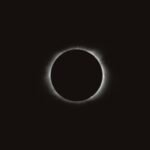
Space weather forecast has suggested that the Sun has unleashed multiple X-class solar flares which are considered to be the most powerful. It even caused an R3-level radio blackout over Australia, Indonesia, India, and East Africa. Know all the details here.
Earth Braces for Potential Aurora Displays as Massive Sunspot Unleashes Powerful X-Class Flares. Know what experts say. The massive sunspot AR3590 has proven to be as dangerous as it appears! Late on February 21st at 23:07 UT (4:37 am IST, February 22nd), this active region produced a powerful X1.8-class solar flare, accompanied by a shortwave radio blackout over the western United States and the Pacific Ocean, the reports from Spaceweather.com suggested. NASA’s Solar Dynamics Observatory captured the extreme ultraviolet flash from the explosion.
While the flare did not appear to produce a bright coronal mass ejection (CME), NOAA analysts are still monitoring data from the SOHO coronagraph for signs of a storm cloud. However, this could be just the first of many flares from the unstable AR3590, as it harbours a ‘beta-gamma-delta’ magnetic field, which carries the potential for multiple X-class explosions.
Space Weather Expert Confirme: X-Class Solar Flare
Dr. Tamitha Skov, a space weather expert, reported on the X-class flare activity, stating, “Finally, a little more action on our Earth-facing Sun. This nice filament eruption today may have a slight Earth- directed component. Not expecting much of a solar storm, but along with a fast wind chaser, it may cause a little bit of aurora around February 26.”
Dr. Skov also issued radiation alerts, warning there was an X1.9 flare. She further revealed that region 3590 fires a big flare at an R3-level Radio Blackout over the Western Pacific, especially Western USA and Canada, New Zealand, Eastern Australia and Indonesia. Thankfully these radio blackouts were short-lived, however, there is an expectation of more activity from this region.
She added, “Rapid Fire X-class flares from Region 3590! An X1.9 followed by an X1.7, both causing short-lived R3-level Radio Blackouts. Ongoing radio & GPS/GNSS disruptions over Australia, Indonesia, India, and East Africa now.” Solar flares are intense bursts of radiation from the sun’s surface. They are classified into different categories based on their intensity, with X-class representing the strongest flares. The X-class is further divided, with an X1 flare being 10 times more powerful than an X1 flare.
Auroras ExpectedWhile the current solar activity may not produce a significant solar storm, the combination of the filament eruption and fast solar wind could lead to moderate auroral displays around February 26th, the SpaceWeather.com report added. If you are an avid skywatcher or space weather photographer, then you should look out for the potential northern lights in high-latitude regions during this timeframe.



